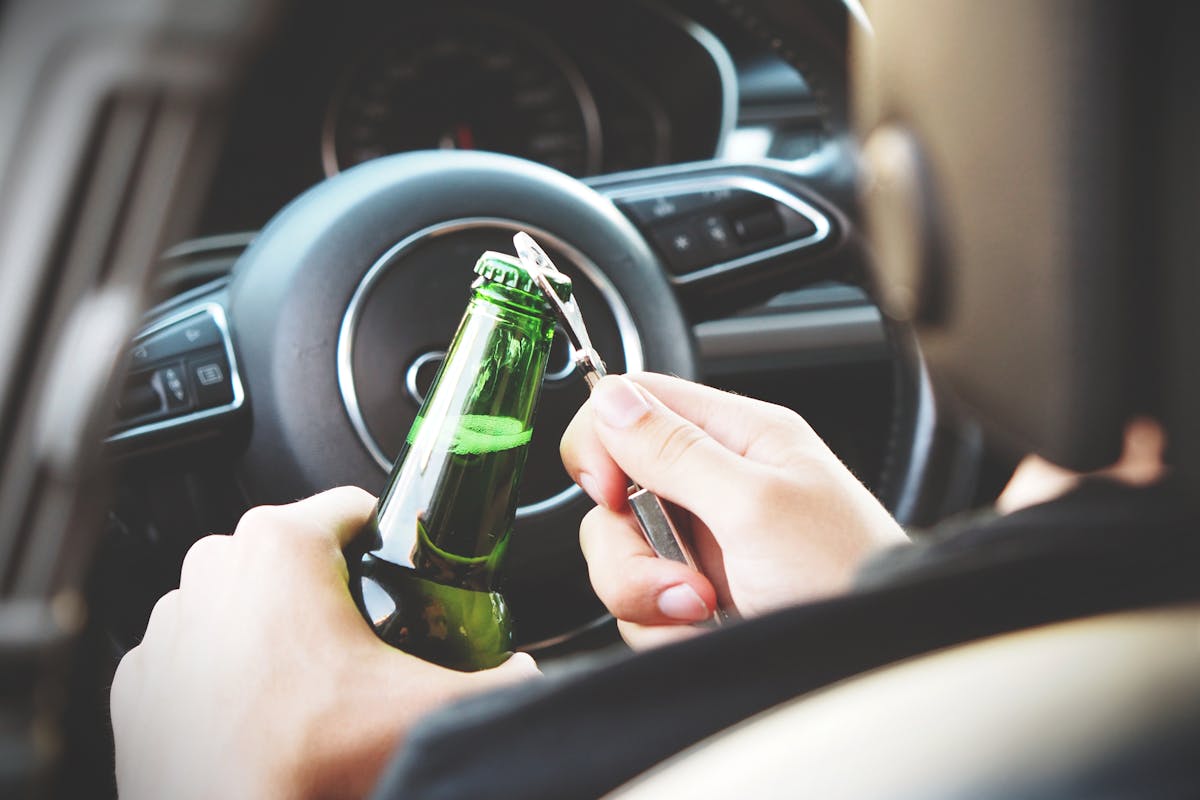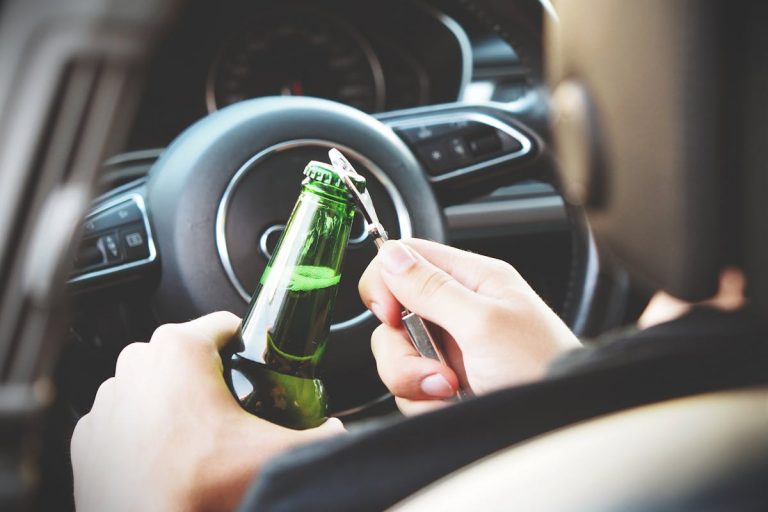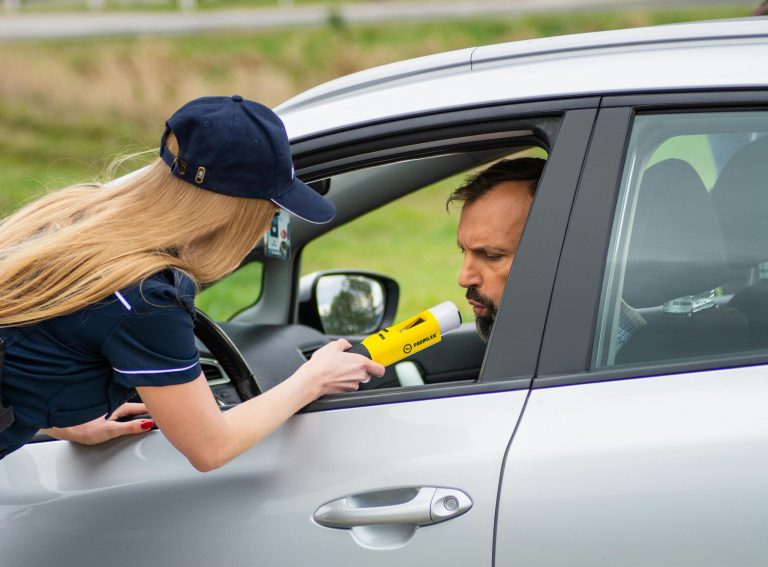Maneuvering the complex path to justice following an accident caused by a drunk driver can be overwhelming. The process, which encompasses documenting the accident scene, obtaining immediate medical attention, filing a police report, and engaging a competent personal injury lawyer, requires both careful planning and execution. Moreover, initiating a civil lawsuit and establishing liability is key to securing a fair compensation for your damages. As we explore this intricate process, one might wonder, what are the most effective strategies to guarantee accountability and fair compensation in these unfortunate circumstances?
Understanding Drunk Driving Laws
Although drunk driving laws vary considerably from one jurisdiction to another, they all share a common aim: to deter individuals from operating vehicles while under the influence of alcohol. Drunk driving penalties, therefore, play a significant role in enforcing these laws and are typically proportionate to the offender’s blood alcohol level. These penalties range from fines, and suspension of driving privileges to incarceration, reflecting the gravity of the crime. Essential analysis of these laws indicates a direct correlation between stringent penalties and reduced drunk driving incidents. However, the effectiveness of these penalties depends largely on their consistent enforcement. Ultimately, while laws and penalties provide the framework for accountability, a thorough approach involving education and societal involvement is vital in combating drunk driving.
Documenting the Accident Scene
In the pursuit of holding a drunk driver accountable, documenting the accident scene serves as an essential step. This process involves gathering vital evidence, photographing the damage inflicted on vehicles, and recording eyewitness accounts. Precise and objective documentation can greatly shape the outcome of the case, reinforcing the legal claim against the intoxicated motorist.
Gathering Crucial Evidence
Procuring solid evidence at the scene of a drunk driving accident is a critical step in holding the perpetrator accountable. This involves a meticulous process of gathering details that can support your case. One of the most potent forms of evidence is witness statements, which can provide an objective account of the incident. Encourage bystanders or other participants to recount their observations, as these narratives can corroborate your claim.
The science of accident reconstruction, conducted by experts, is another key component. It can reveal the sequence of events leading to the accident, the speed of the vehicles involved, and the driver’s behavior. Such objective, detailed analysis can help establish the drunk driver’s liability, reinforcing your pursuit of justice.
Photographing Vehicle Damage
While gathering witness accounts and reconstructing the accident sequence are significant steps, an additional indispensable method to accumulate evidence is through photographing the vehicle damage at the accident scene. This process supports a thorough damage assessment to determine the impact of the collision on the vehicle’s condition. Photos should be taken from various angles and perspectives to capture the extent of the damage accurately. Close-ups can provide detailed insights into specific points of impact, while wider shots can offer a general overview of the vehicle condition post-accident. A systematic approach to photographing vehicle damage can yield vital evidence in establishing the severity of the accident, directly influencing the course of legal proceedings against the drunk driver.
Recording Eyewitness Accounts
Although photographing vehicle damage may provide substantial evidence, securing eyewitness accounts of the incident is equally critical in documenting the accident scene. Eyewitness reliability can greatly influence the outcome of a case. This is because these individuals can provide a first-hand account of the accident, possibly capturing details that could be overlooked in photos. However, one must remember that eyewitness reliability is subject to individual perception, memory recall, and bias. Consequently, it is essential to secure these accounts promptly to boost statement accuracy. Detailed, consistent, and corroborating eyewitness accounts can be a powerful tool in establishing the drunk driver’s negligence and accountability, thus aiding in claiming rightful damages. Remember, an accurate and timely-recorded eyewitness account can be your strongest ally in your pursuit of justice.
Getting Immediate Medical Attention
Have you ever considered the importance of seeking immediate medical attention following a drunk driving incident? It’s paramount not only for your personal wellbeing but also for legal reasons. An efficient emergency response team can expedite your treatment, mitigating potential long-term health impacts. Additionally, immediate medical attention leads to the rapid production of medical records. These documents are crucial in building a robust case against the drunk driver, providing objective evidence of your injuries and their severity. Moreover, they can illustrate the direct link between the accident and your injuries. Essentially, getting immediate medical attention serves dual purposes: safeguarding your health and fortifying your legal case, by providing irrefutable proof of the damages you suffered.

Hiring a Personal Injury Lawyer
In the aftermath of a drunk driving incident, it’s critical to seek legal advice from a personal injury lawyer. Identifying the right lawyer can make a significant difference in the outcome of your case. A thorough understanding of the legal process is also essential in order to guarantee preparedness and strategic decision-making.
Finding the Right Lawyer
How does one commence on the journey to find the right personal injury lawyer? Choosing representation begins with a systematic process of research and evaluation. One must consider the lawyer’s area of expertise, past case success, and client testimonials. When evaluating experience, pay particular attention to their familiarity with drunk driving cases.
A lawyer’s track record can provide insight into their ability to effectively handle your case. Look for an attorney who has a reputation for obtaining favorable settlements and verdicts for their clients. It’s also important to guarantee they communicate clearly and can explain the legal process in a way you understand. Ultimately, the right lawyer can greatly affect the outcome of your case and your ability to secure just compensation.
Legal Process Overview
While one might feel overwhelmed at the onset, understanding the legal process of hiring a personal injury lawyer can alleviate some of the initial apprehension. The journey commences with a free consultation, where potential clients present their cases, enabling the attorney to assess its viability. The chosen lawyer then conducts a thorough investigation to gather all pertinent evidence. This step is essential for building a compelling case for legal representation. Subsequently, the lawyer files the required insurance claims, ensuring all procedures align with the stipulated laws and deadlines. If negotiations fail, the attorney can file a lawsuit, leading to possible trial proceedings. This process, while intricate, is necessary to achieve justice and compensation for damages incurred.
Filing a Police Report
Taking immediate action to file a police report is an essential step in holding a drunk driver accountable. The filing procedures need to be adhered to promptly, ensuring the incident’s details are accurately documented. This involves police involvement, which is important in gathering evidence to substantiate your claim. The officers will conduct a thorough investigation, documenting the scene, interviewing witnesses, and evaluating the driver’s condition. The resulting report serves as an authoritative record of the incident, providing objective details that are significant in subsequent legal proceedings. Remember, your immediate response and cooperation with police can greatly influence the outcome of your case against the drunk driver. Therefore, understanding and following the correct filing procedures is paramount.
Initiating a Civil Lawsuit
After completing the necessary police report, the next course of action involves initiating a civil lawsuit against the drunk driver. This step is essential in seeking compensation for damages incurred due to the accident. Formulating effective civil lawsuit strategies is key to this process. It is important to gather all relevant evidence, including the police report, medical records, and any eyewitness accounts. This should be done promptly, as lawsuit timeframes can be strict, with most jurisdictions having statutes of limitations for filing such suits. Understanding these timeframes is integral to guarantee the lawsuit is filed within the permitted period. Always consult with a legal professional who specializes in drunk driving cases to guide you through this complex process.
Proving Drunk Driver’s Liability
In order to hold a drunk driver accountable for their actions, it is essential to prove their liability for the accident. Establishing such liability often hinges on demonstrating that the driver’s blood alcohol exceeded legal limits, indicating intoxication, at the time of the incident. Evidence of elevated blood alcohol can be sourced from police reports, breathalyzer results, or hospital records. However, intoxication levels alone may not suffice. It must be shown that the drunk driver’s impairment directly led to the accident and subsequent damages. This causal link between the driver’s intoxication and the accident is central to proving liability and requires meticulous analysis of all available evidence. For those seeking legal recourse, consulting an experienced attorney who specializes in holding drunk drivers accountable for injuries can be a crucial step in navigating the legal complexities and securing rightful compensation.
Negotiating a Fair Compensation
Once the liability of a drunk driver has been definitively established, the task then turns to obtaining just compensation for the victim. This phase involves a process of settlement negotiation, where both parties attempt to reach an agreeable compensation amount. The victim’s attorney plays an important role in this phase, advocating for the victim’s rights and negotiating to obtain a fair deal.
The compensation calculation considers various factors, such as medical expenses, loss of income, and pain and suffering. It is vital to guarantee that the compensation reflects the victim’s actual losses and potential future costs. This analytical approach to negotiating a settlement guarantees the victim receives adequate recompense, holding the drunk driver financially accountable for their actions.
Frequently Asked Questions
How Can I Psychologically Cope After a Drunk Driving Accident?
Psychological coping after a drunk driving accident involves emotional healing and trauma recovery. Seek professional help, practice self-care, connect with support groups, and engage in therapeutic activities to navigate this difficult phase effectively.
What Are the Long-Term Physical Consequences of Such Accidents?
Long-term physical consequences of drunk driving accidents often include chronic pain, requiring continual physical rehabilitation. Victims may face mobility issues, spinal cord injuries, traumatic brain injuries, fractures, and psychological trauma, leading to a lower quality of life.
Can I Seek Justice if the Drunk Driver Is a Relative or Friend?
Yes, you can seek justice if the drunk driver is a relative or friend. The process involves establishing their accountability and responsibility for the incident, irrespective of personal relationships. Legal assistance is often necessary in these cases.
How Can I Support a Family Member Whos Been a Victim of a Drunk Driver?
Supporting a family member impacted by a drunk driver involves providing emotional support through empathy and understanding, and practical assistance such as help with medical appointments, legal proceedings, and dealing with insurance matters.
What Are the Support Groups Available for Drunk Driving Accident Victims?
Several support groups exist for drunk driving accident victims, including Mothers Against Drunk Driving (MADD) and Students Against Destructive Decisions (SADD). These groups offer victim support, educational resources, and recovery programs to facilitate healing and justice.


